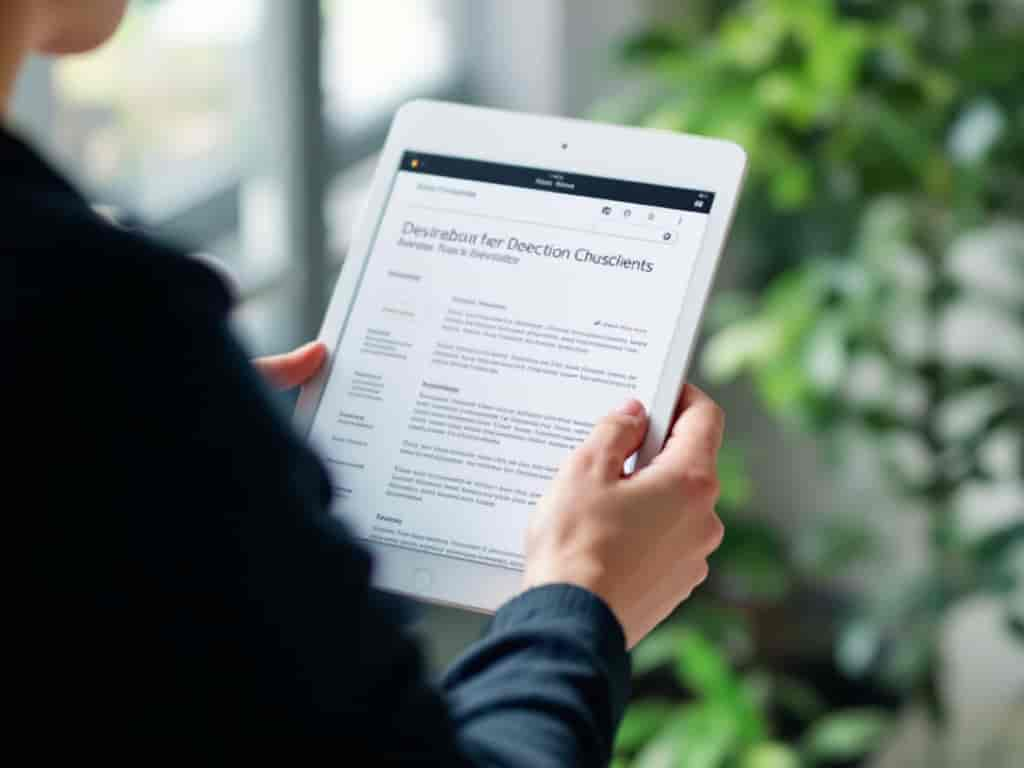How to Stop Living Paycheck to Paycheck: 6 Financial Habits to Start Today
Ellie Moore

Photo: How to Stop Living Paycheck to Paycheck: 6 Financial Habits to Start Today
Living paycheck to paycheck is a reality for many people. Whether you’re a recent graduate, a single parent, or someone who’s been in the workforce for years, the struggle to make ends meet can feel overwhelming. In this article, we will explore six effective financial habits that can help you break free from this cycle and build a more secure financial future.
Understanding the Paycheck to Paycheck Cycle
Before we dive into the habits that can transform your financial situation, it’s essential to understand what it means to live paycheck to paycheck. Essentially, this situation occurs when a person relies entirely on their next paycheck to cover essential expenses, leaving little to no room for savings or unexpected costs. According to a survey by CareerBuilder, nearly 80% of Americans live this way at least occasionally. This statistic raises questions about financial literacy, budgeting skills, and the broader economic landscape.
Why Do People Live Paycheck to Paycheck?
There are various reasons why individuals find themselves in this predicament. High living costs, stagnant wages, and unexpected expenses can all contribute. Additionally, many people lack sufficient financial education, making it challenging to manage their money effectively. It's crucial to reflect on your own financial habits and identify areas that need improvement.
Habit 1: Create a Realistic Budget
One of the most effective ways to start taking control of your finances is to create a budget. A budget acts as a financial roadmap, helping you track income and expenses.
How to Get Started
- Track Your Income: List all sources of income, including salaries, side gigs, and any other earnings.
- List Your Expenses: Create categories for fixed expenses (like rent and utilities) and variable expenses (like groceries and entertainment).
- Set Goals: Decide how much you want to save each month. This can be a percentage of your income or a specific dollar amount.
Real-Life Example
Consider Sarah, a 32-year-old marketing professional. After struggling to make ends meet, she decided to create a budget. By tracking her expenses for a month, she realized she was spending too much on dining out and subscriptions she rarely used. With a clear budget in place, she cut unnecessary expenses and redirected that money into savings.
Habit 2: Build an Emergency Fund
An emergency fund is a crucial safety net that can prevent financial stress in times of crisis. Aim to save at least three to six months' worth of living expenses.
How to Start Saving
- Set a Savings Goal: Determine how much you need for emergencies.
- Automate Savings: Set up an automatic transfer from your checking account to a savings account each month.
The Importance of Being Prepared
Having an emergency fund can provide peace of mind. For instance, when Michael’s car broke down unexpectedly, he was able to pay for repairs without resorting to credit cards, which often lead to debt.
Habit 3: Cut Unnecessary Expenses
Identifying and eliminating unnecessary expenses is a powerful way to free up cash. This doesn’t mean you need to deprive yourself, but rather to be mindful of where your money goes.
Tips for Cutting Costs
- Review Your Subscriptions: Cancel any subscriptions you don’t use regularly.
- Shop Smart: Look for discounts, use coupons, and compare prices before making purchases.
An Anecdote of Change
Lisa, a graphic designer, found herself overwhelmed by various subscription services. By conducting a monthly review, she canceled two streaming services she rarely used. This small change allowed her to save $30 a month, which she then added to her savings.
Habit 4: Increase Your Income
Sometimes, the best way to stop living paycheck to paycheck is to focus on increasing your income. This can be achieved through various means.
Ways to Boost Your Earnings
- Ask for a Raise: If you’ve been performing well at your job, consider negotiating a salary increase.
- Start a Side Hustle: Look for freelance opportunities or start a small business based on your skills.
The Power of Initiative
Jason, who worked full-time in sales, decided to start a weekend photography business. Within a year, he was making an additional $500 a month, which significantly impacted his financial stability and allowed him to save more.
Habit 5: Educate Yourself Financially
Financial literacy is key to breaking the paycheck-to-paycheck cycle. Understanding how money works can empower you to make informed decisions.
Resources for Learning
- Books: Consider reading books like "Rich Dad Poor Dad" by Robert Kiyosaki.
- Online Courses: Websites like Coursera and Khan Academy offer free courses on personal finance.
The Benefits of Knowledge
By educating yourself, you can make better financial decisions. For instance, knowing the difference between needs and wants can help you prioritize your spending and savings effectively.
Habit 6: Review and Adjust Regularly
Finally, it’s essential to regularly review your financial situation and adjust your habits as needed. Life changes, and so should your financial strategies.
How to Keep Track
- Set Monthly Check-Ins: Review your budget and expenses each month to see where you stand.
- Adjust Goals: If your financial situation changes, be flexible with your savings goals and budget.
Staying Committed
Regular reviews help you stay committed to your financial goals. Just like any habit, consistency is key.
Conclusion
Breaking free from the paycheck-to-paycheck cycle is not an overnight process, but with commitment and the right habits, it is entirely achievable. By creating a budget, building an emergency fund, cutting unnecessary expenses, increasing your income, educating yourself, and regularly reviewing your financial situation, you can take significant steps toward financial freedom.
Remember, the journey to financial stability is personal and unique. Reflect on your circumstances, be patient with yourself, and celebrate small victories along the way. With determination and these six habits, you can transform your financial future and live with less stress and more security.
Finance & Investment
View All
November 23, 2025
American Honda Finance Contact InfoMaster expert SEO content to rank higher and connect with your audience. Learn how E-E-A-T drives high-quality, trustworthy content for search engine success.
Ellie Moore

January 14, 2025
Finance Internships for UndergraduatesUnlock expert SEO content that truly helps your audience. Craft high-value, authoritative, and trustworthy content for top rankings and engagement.
Ellie Moore

January 9, 2025
Best Ford Finance Offers 2025Elevate your rankings with expert SEO content. Learn how E-E-A-T drives authority, trust, and traffic by delivering genuine value, not just keywords.
Ellie Moore

September 9, 2025
Nonprofit Finance Fund InformationMaster expert SEO content to rank higher, drive traffic, and build authority. Discover strategies for audience intent, keyword research, and E-E-A-T.
Ellie Moore

August 3, 2025
JA Finance Park Student ProgramBeyond keywords: Discover how expert SEO content drives top rankings, targeted organic traffic, and builds true brand authority for online success.
Ellie Moore

August 12, 2025
Mariner Finance Real Customer ReviewMaster online visibility! Expert SEO content drives engagement, conversions & builds authority. Leverage E-E-A-T to rank higher with quality content.
Ellie Moore
Insurance
View AllDon't let vet bills break the bank. Discover top pet insurance solutions to secure your furry friend's health and your financial peace of mind.
Ellie Moore
Decode your insurance policy! Learn to understand terms, coverage, and conditions with this beginner-friendly guide.
Ellie Moore
Discover how return of premium life insurance works and whether it’s the right choice for you. Understand the benefits and costs!
Ellie Moore
Premium Hagerty Insurance Plans: Unlocking Unparalleled Protection for Your Prized Possessions Are you risking substantial financial losses due to inadequate co...
Ellie Moore
Safeguard your business's future. Essential Liability Insurance protects against legal claims, financial losses, and ensures continuity. Get peace of mind.
Ellie Moore
Safeguard your business from cyber threats. Learn how Enterprise Cyber Insurance Coverage Silverfort helps agents, policyholders, and risk managers mitigate ris...
Ellie Moore
Education
View AllHelp students master metacognition! Learn how teaching students to think about their thinking can improve problem-solving and critical thinking skills.
Read MoreCompetency-based education focuses on mastery over seat time. Learn how this model is reshaping how we measure student success.
Read MoreRevive ancient teaching with the Socratic method! Learn how this questioning approach encourages deep thinking and active learning.
Read MoreLearn effective classroom strategies to manage ADHD. Discover how teachers can support students with ADHD for better learning outcomes.
Read MoreHow does social media affect learning and behavior? Uncover the positive and negative effects of social platforms on students today.
Read MoreMultilingual education promotes diversity and cultural understanding. Learn why it matters and how it benefits students in a globalized world.
Read MorePopular Post 🔥
View All
1
2
3
4
5
6
7
8
9
10
Health






Automotive
View All
July 25, 2025
Expert Automotive Advice For Better Car Care
Master smarter car care with expert advice. Prevent costly repairs, enhance safety, and extend your vehicle's life for ultimate longevity and savings.

July 13, 2025
Explore The Best Of Cal Automotive Services
Unlock unrivaled vehicle care with expert Cal Automotive Services. Ensure safety, prevent costly repairs, and drive with total peace of mind.

September 3, 2025
Best Automotive Polishing Compound For Shine
Transform your car's paint! Discover how to use automotive polishing compounds to eliminate defects & achieve a brilliant, mirror-like shine.

August 18, 2025
What Is An Automotive Relay Tester Used For
Unlock car electrical mysteries! Learn how vital automotive relays work, why they fail, and how a relay tester simplifies diagnostics. Essential guide.

July 26, 2025
Five Star Automotive Service Reviews And Ratings
Discover why 5-star auto service reviews are crucial. They build trust, guide consumer decisions, and drive growth for top-tier repair shops.

August 13, 2025
VIP Automotive Premium Service For Your Car
Elevate your car care with VIP Automotive Premium Service. Discover proactive, personalized maintenance for peak performance, longevity, and an ultimate driving...
















